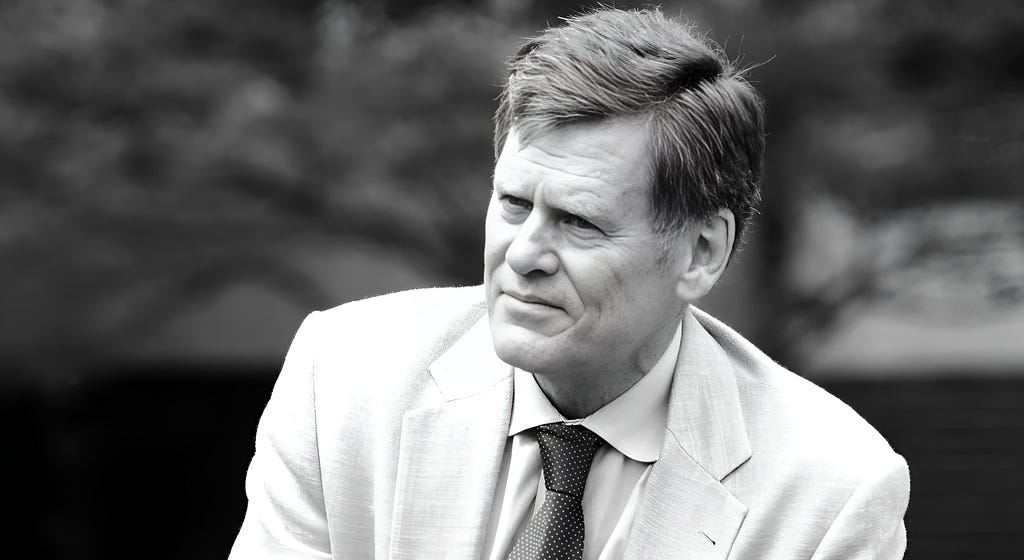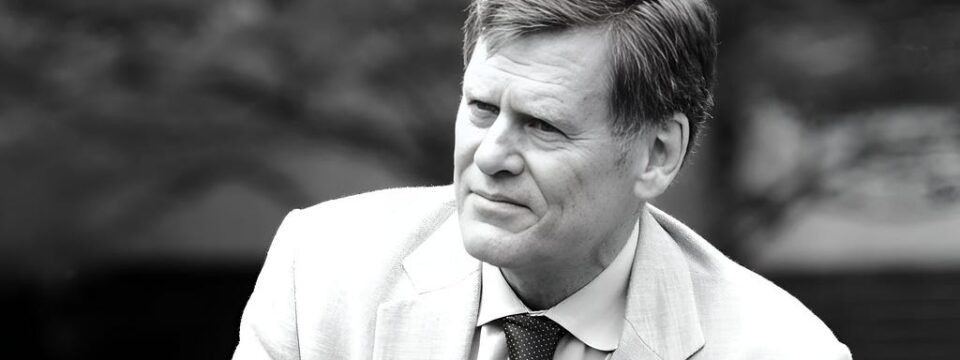
A quote attributed to Lao Tse: “The way to teach is to be.” For nearly forty years until my retirement, I led organizations. A great part of the work was teaching about purpose.
As part of my series about “authors who are making an important social impact”, I had the pleasure of interviewing Jonathan Lash.
Lash is a former Peace Corps volunteer, federal prosecutor, and environmental litigator. He served as Vermont Secretary of Natural Resources, a law professor, and a college president. For a decade-and-a-half Lash was president of the World Resources Institute, an international organization that puts ideas into action to solve global environment and development problems. In 2006, Rolling Stone Magazine profiled him as one of 25 “Warriors and Heroes “fighting to stave off planet-wide climate catastrophe.” His efforts to persuade major corporations to take climate change seriously led to his being named one of the “100 Most Influential People in Business Ethics” by Ethisphere magazine (2007) and one of the world’s “Top 100 Most Influential People in Finance” by Treasury and Risk Management magazine (2005).
Thank you so much for joining us in this interview series! Before we dive into the main focus of our interview, our readers would love to “get to know you” a bit better. Can you tell us a bit about your childhood backstory?
I grew up in Greenwich Village in New York City, the child of two doting intellectuals. My mother ran a non-profit organization that advocated for the rights of children. My father, a radical youth leader in the 1920s and 30s, became a journalist after World War II and later a Pulitzer Prize-winning biographer. My parents were close friends of Eleanor Roosevelt. She was my godmother. I was early on inculcated with a passion for writing and a commitment to social justice.
I got out of New York to a wonderful progressive school in the hills of southern Vermont, the Putney School. Small classes, a love of the outdoors, and every student worked on the farm or in the woods. Putney taught both self-reliance and responsibility for one’s community.
Graduating from Harvard, I went into the Peace Corps, met my future wife, and lived in a little village among the coffee plantations up in the hills of the Dominican Republic. I had a one-room thatch roof shack without running water or electricity. My job was to organize the community to build a new school. Many of the families I went to visit had pictures of JFK on the wall next to pictures of Jesus. Living, working, and endeavoring to make my Ivy League skills useful to brutally hard-working campesinos was humbling.
When you were younger, was there a book that you read that inspired you to take action or changed your life? Can you share a story about that?
James Baldwin’s Nobody Knows My Name, which prompted me to get involved with civil rights. A friend and I somehow persuaded school officials and our parents to let us drive to Birmingham in the spring of 1963 to bear witness to Sherriff Bull Connors’ violent suppression of peaceful demonstrations. An awakening for a child of white privilege.
It has been said that our mistakes can be our greatest teachers. Can you share a story about the funniest mistake you made when you were first starting? Can you tell us what lesson you learned from that?
I’m a bit unclear about the question. It asks about a mistake I made when I was first starting. Starting what? My career? Writing? I wrote this book relatively quickly with the help of characters who seemed to have clear ideas of who they were and what was going to happen … which was fortunate since I did not. I got to the end, and it turned out that the mystery did have an intriguing solution. I was pleased. I drank champagne. I thought I was done. How naïve! The various editors and advisors swung into action. “Make it shorter.” “Put the first murder in the first few pages.” “Every line should drive the plot.” “Cut it more.”
Believing I was done had been a rookie mistake. That was the easy part. It was followed by a brutal two-year process of cut and revise. I didn’t like it. The characters didn’t like it.
Can you describe how you aim to make a significant social impact with your book?
What Death Revealed is a story of murder, greed, and who gets justice in an angry, two-faced city — a mostly black, poor, and segregated city hidden behind the gleaming monuments and massive office buildings of the Capitol of the Free World.
It is set in Washington, DC, eight years after the assassination of Martin Luther King ignited an explosion of violence that raged for days, devastating the core of the city, and provoking President Johnson to send tanks rolling through downtown.
Eight years later ruined neighborhoods have not been rebuilt, but Congress, which long treated Washington as a federal plantation, has given its citizens partial home rule. The city was 70 % black. The police force remained 80% white.
The question of who gets justice remains one that troubles American Society.
Can you share with us the most interesting story that you shared in your book?
The book is a story. I hope the readers find it interesting. I suggest Chapter 7 as a good fragment to read.
What was the “aha moment” or series of events that made you decide to bring your message to the greater world? Can you share a story about that?
I had written and published a lot of non-fiction, but never fiction. One morning the moderator of my writers’ group gave as a prompt to write a “dark scene.” A long-ago morning when I was a rookie prosecutor sitting in a bleak little office processing cases for cops who’d been on the streets all night, surfaced from some decades-old storage bin in my mind. Three jaded Vice Squad cops who just wanted to get the paperwork done and go home to bed were disgusted when I asked questions. I wrote about the scene and the three men. When I read what I had written to the group someone said, “That sounds like the beginning of a mystery novel.” Characters and scenes began boiling in my head and I began writing. It turned out the characters had things that they’d been waiting to say. Aha.
Without sharing specific names, can you tell us a story about a particular individual who was impacted or helped by your cause?
No, the book is a mystery novel, not a narrative about a cause.
Are there three things the community/society/politicians can do to help you address the root of the problem you are trying to solve?
I am afraid that here, too the answer is that the book is a novel, not an account, though I have spent most of my life working for environmental causes.
How do you define “Leadership”? Can you explain what you mean or give an example?
I believe in servant leadership — helping people or groups solve problems or achieve goals. I did my Peace Corps service in the Dominican Republic a few years after the long-time dictator Trujillo was deposed. Trujillo has systematically eliminated local governments and organizations to minimize threats to his control. The community wanted to build a school. The development agency I worked with provided tools and materials. The village needed to provide the labor, but people had trouble deciding who would work when. A man named Nandito, an ox-driver, made a game of dividing people into three groups, white, red, and blue, the colors of the Dominican Flag. Then he put up a flag pole and put the women in charge of hanging the flag of which ever group was needed. Then they organized prizes for whichever group got the most work done each week. Under Trujillo, even locally, everybody took orders, no one dared show initiative. Nandito helped them to organize themselves.
What are your “5 things I wish someone told me when I first started” and why? Please share a story or example for each.
I’m not wise enough to offer five things. Here are a couple. Write like mad and don’t look back. Listen to your characters.
Can you please give us your favorite “Life Lesson Quote”? Can you share how that was relevant to you in your life?
A quote attributed to Lao Tse: “The way to teach is to be.” For nearly forty years until my retirement, I led organizations. A great part of the work was teaching about purpose.
Is there a person in the world, or in the US with whom you would like to have a private breakfast or lunch with, and why? He or she might just see this, especially if we tag them. 🙂
Given the chance, I would be very pleased to meet with Percival Everett, the author of James a powerful book that uses changed perspectives to wrench perceptions readers have held to since high school.
My website is Jonathanlash.com
This was very meaningful, thank you so much. We wish you only continued success on your great work!
Social Impact Authors: How & Why Author Jonathan Lash Is Helping To Change Our World was originally published in Authority Magazine on Medium, where people are continuing the conversation by highlighting and responding to this story.
